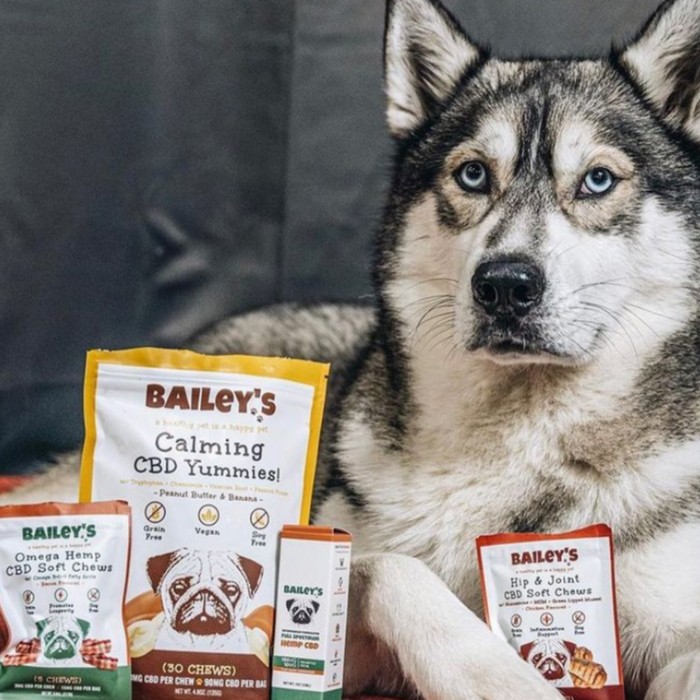
If you want to use hemp oil for hair growth, it's essential to choose the best brand. Exhale Wellness, Royal CBD, R+Co, and CBDPure are among the best brands available. Each brand has unique benefits and you need to make sure that the right one is right for you.
CBDPure
CBDPure hemp oil is a high-quality, full-spectrum CBD oil that is extracted by using a CO2 extraction process. This extraction process preserves the highest CBD levels and minimizes THC. These products are a better choice than any other company because they contain less THC.
CBDPure's hemp oils are derived from full-spectrum cannabis plants. It is one of the strongest CBD products on the marketplace, with 33mg per serving. This dosage may seem too high for some, but it might be right for those who are more experienced. You can also purchase this hemp oil in convenient softgel capsules. These capsules deliver the desired CBD dosage.

Royal CBD
Royal CBD is a Nevada-based premium company that strives to set the standard in high-quality CBD oil. Their line of products includes full-spectrum CBD oil, THC-free gummies, and two different types of broad-spectrum topicals. You can try a sample bottle or buy multiple bottles to get the best value. Consider the money-back guarantee as well as the company's social presence.
You should verify the CBD and other ingredients of any product you are considering buying before purchasing it. If you need to verify that the product does not contain any unwanted substances, a company should be able provide third-party lab reports. It should also avoid making inflated claims about the benefits of CBD oil, including hair growth. Cannabidiol has the potential to rejuvenate the scalp and stimulate healthy hair growth. It won't treat skin diseases or fix broken bones.
R+Co
Hemp oil is a natural ingredient that protects hair and prevents breakage. It may also be a powerful anti-inflammatory, which can help to repair and thicken hair. These claims are not supported by scientific research. However, hemp seed oil might help you achieve thicker, shiny locks without having to go through the hassle of hair-care routines.
Stearic acid, which is naturally conditioning for the scalp, is found in hemp seed oils. This acid helps make the scalp robust and supple. Hemp seed oil can also moisturize and clean the scalp. Additionally, hemp seed oil may reduce inflammation in the scalp. This ingredient is used in many popular hair care brands like R+Co.

BudPop
BudPop has the right product for you, whether you want to stimulate hair growth or simply need a natural alternative. The natural remedy for hair growth is hemp-derived cannabidiol. Additionally, the oil contains natural terpenes and coconut oil.
This brand specializes on hemp products and only uses the highest quality hemp plants to create their products. They source their raw materials from American-grown hemp, and they partner with local farmers to ensure that they only use the best quality. They also guarantee the quality and offer a guarantee of satisfaction within 30 days.
FAQ
Which countries have the best quality CBD?
The United States produces the majority of CBD products.
High-quality CBD products are also being produced in Canada, Australia and New Zealand.
Does CBD help with anxiety?
CBD oil is an effective treatment for anxiety. This happens because it interacts to certain brain receptors called CB1 (and CB2), respectively. The endocannabinoid systems regulates mood and stress response.
When we feel anxious, our bodies release chemicals that activate the CB1 receptor. This receptor triggers the amygdala and is responsible to emotional processing.
When the CB1 receptor is blocked, the amygdala doesn't receive the signal to process emotions. CBD users have less negative feelings.
In 2017, a study showed that CBD can reduce anxiety in people with social phobia. Another study showed that CBD reduces symptoms of PTSD.
A 2018 review concluded CBD's anxiolytic qualities could be helpful in treating generalized anxiety disorder.
Another study indicated that CBD might help reduce panic attacks.
However, multiple studies have shown that CBD does increase anxiety in mice.
The difference in results between animals and humans could be explained by differences in the way that CBD is metabolized in different species.
CBD does not have any safety data. However, most experts agree that CBD is safe when used as directed.
What is the future of the CBD industry?
The future for CBD is bright. It's clear to see why so many people have jumped on this industry. With CBD products accounting for over $1Billion in global consumer spending, it is easy to see how the market is growing exponentially.
Statista reports that in 2019, global sales of CBD (cannabidiol) are expected to exceed $22.4 Billion. That's an increase of almost 200% from 2018!
The CBD market is also forecast to grow at 22.5% compound annual growth rate, which would result in nearly $6.8B in revenue by 2022.
This is great news for companies looking to enter this space as well as those already operating in the sector. But, it is important to remember that the CBD industry is still in its infancy. There will be many challenges.
How can CBD products sold in a legally compliant manner by companies?
The FDA does not regulate hemp for its agricultural commodities. The Controlled Substances Act governs all other cannabis derivatives, such as marijuana. CBD has not been subject to any specific regulations.
CBD is legal at state level in 29 US states. Federal law considers it illegal. This uncertainty is a problem for CBD-product sellers.
The FDA has specific guidelines on how CBD products must be marketed. For example, they must clearly disclose any product's THC content. Companies cannot claim that CBD helps treat certain medical conditions without scientific evidence to support this assertion.
Additionally, the FDA requires manufacturers submit information about manufacturing practices and quality control. Companies are also required to participate in clinical trials in order to demonstrate safety and efficacy.
Companies should consider these factors when developing their own marketing strategies.
Can I use CBD during pregnancy?
The research on CBD use in pregnancy is still lacking.
Based on the limited information, however, it seems unlikely that CBD would cause harm for the baby.
Pregnant mothers should not consume CBD unless it is recommended by their doctor.
The Food and Drug Administration published a warning about potential health risks when CBD is taken while pregnant.
According to the FDA, "there is some evidence that cannabis use during pregnancy may increase the risk of miscarriage."
The agency said that more research is needed to reach a firm conclusion.
What are some of the common mistakes that companies make when entering America's cannabinoid market
It is easy to make a mistake by not knowing the regulations surrounding cannabis products. This could result in you needing to alter your product formulation.
Unskilled labeling is the second. It is important to determine if your product contains CBD or THC.
Finally, you must know how to package your product correctly. If your product does contain THC, then you must ensure that it is packaged in child-resistant containers.
Even if your product doesn't contain THC, you must still comply with all packaging laws. There are many states in which cannabidiol is legal.
Keep track of any recalls regarding your products. If there is a problem with your product, it is important that you inform customers as quickly as possible.
Statistics
- As a substance that was federally illegal before the passage of the 2018 Farm Bill, hemp-derived cannabinoids with no more than 0.3% THC still face a regulatory grey area. (forbes.com)
- A recent systematic review of human trials also reported that individuals with epilepsy receiving CBD (5–20 mg·kg−1·day−1) were more likely to experience decreased appetite than those receiving placebo (i.e., ~20 vs. 5% of patients) (ncbi.nlm.nih.gov)
- The inhibition of FAAH is predicted to lead to an increase in brain and plasma concentrations of AEA, which acts as a partial agonist at CB1R and CB2R, thereby increasing endocannabinoid tone [92, 110]. (ncbi.nlm.nih.gov)
- however, one study also found that these effects were virtually abolished when the original media (a nutrient broth agar) was replaced with one containing 5% blood (increasing the minimum concentration to ~160 μM CBD) [179]. (ncbi.nlm.nih.gov)
- OralWhere HED is the human equivalent dose, and Km is a correction factor estimated by dividing the average body mass (BM) of the species (60, 0.020, and 0.150 kg for 11 humans, mice, and rats, respectively) and by its surface area (see: Nair et al. (ncbi.nlm.nih.gov)
External Links
How To
What are the most common problems in the CBD industry?
The current market for CBD products is growing at an incredible rate. However, this market is still full of challenges for businesses that want to expand. There are many challenges facing businesses looking to enter this space, including low consumer awareness, high costs of entry and limited access to capital.
Many people are not aware of what CBD is, or how it functions. This makes it difficult for consumers to make informed decisions on whether or not they want CBD products.
Many CBD companies depend heavily on word of mouth marketing. This can be costly as it involves advertising and staffing to promote the brand.
The high production costs are another issue that new entrants to the CBD industry face. The raw materials needed to create CBD products are quite expensive. CBD oil is made from hemp that has been grown in particular climates.
To grow enough hemp for CBD oil production, it costs approximately $1,000 per acre. This means that many small farmers cannot afford the cost of starting.
A lack of capital access is another issue that new entrants will face in the CBD marketplace. Banks are often discouraged from helping people start businesses because of the stigma that surrounds the industry.
The sale of CBD products is still subject to regulatory uncertainty. There are no guidelines for how CBD products should market.
Despite some states having passed laws restricting the sale CBD products, this is not yet a national policy.
So far, only two states - Maine and Nevada - have legalized recreational marijuana.
Massachusetts and Michigan, however, are exploring similar options.
These changes could lead to increased competition between CBD manufacturers.
As a result of these factors, many entrepreneurs choose to work from home rather than start a physical business.